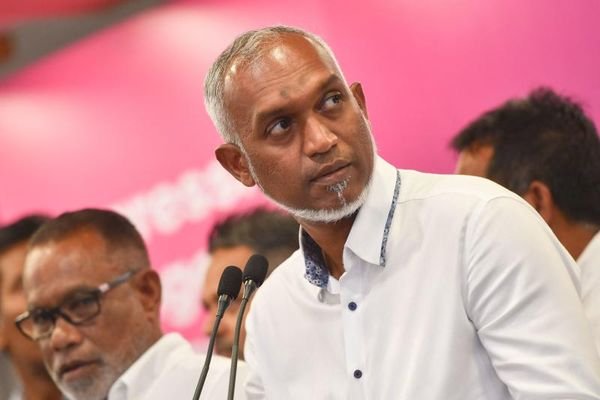India has decided to withdraw its troops stationed in the Maldives by May, as announced by the Maldivian Foreign Ministry on Saturday. This move comes in the backdrop of strained ties between the two nations, particularly since Mohamed Muizzu assumed the presidency of the Maldives, expressing a commitment to end the country’s “India First” policy. Approximately 80 soldiers will be replaced by civilians, marking a significant development in the evolving dynamics of the relationship between India and the Maldives.
The decision to withdraw troops stems from a series of disagreements that have surfaced since Mohamed Muizzu’s election as the Maldivian president. The “India First” policy, traditionally maintained by the Maldives, has faced challenges, contributing to the existing strain between the two nations. President Muizzu, who assumed office last year, has been vocal about ending this policy, resulting in a recalibration of the Maldives’ approach to its regional relationships.
The troop withdrawal deadline, set for May, follows President Muizzu’s call for the removal of Indian troops by March 15. The gradual withdrawal process will see the first batch of Indian troops leaving by March 10, with the complete evacuation expected by May 10. These details were finalized during a high-level meeting in the Indian capital that addressed various issues concerning bilateral cooperation between India and the Maldives.
The decision to replace military personnel with civilians is significant and denotes a strategic shift in the relations between the two nations. The bilateral discussions encompassed a range of issues, including military support, humanitarian activities, and broader cooperation. The focus on finding “mutually workable solutions” suggests a diplomatic effort to address differences and forge common ground between India and the Maldives.
The discussions also led to an agreement on the continued operation of Indian aviation platforms, which have played a pivotal role in providing humanitarian services to the Maldives. These platforms are vital for medical evacuations and support for residents of remote islands. The joint statement from the Maldivian Foreign Ministry emphasized the importance of these aviation platforms and showcased a commitment to maintaining cooperative efforts for the well-being of the Maldivian people.
The strategic implications of the troop withdrawal are situated within the context of broader geopolitical dynamics in the Indo-Pacific region. The move comes at a time when major powers, including India and China, are vying for influence in the strategically vital Indo-Pacific region. The Maldives, positioned in the Indian Ocean, has become a focal point in this geopolitical competition.
The decision also highlights the evolving nature of India-Maldives relations. With geopolitical dynamics continually shifting, nations are reevaluating their strategic alignments and diplomatic approaches. The troop withdrawal and the subsequent civilian replacement signify a nuanced approach to addressing geopolitical complexities and maintaining regional stability.
The agreement reached during the high-level meeting not only focuses on troop withdrawal but also emphasizes continued cooperation in various aspects of bilateral relations. This multifaceted approach is crucial for navigating the intricate web of geopolitical challenges in the Indo-Pacific.
As the withdrawal process unfolds, the next bilateral meeting scheduled in the last week of February in Male, the capital of the Maldives, will likely play a pivotal role in shaping the future trajectory of India-Maldives relations. Observers will keenly watch how both nations navigate their diplomatic ties amid the broader geopolitical currents in the Indo-Pacific region.
The decision by India to withdraw its troops from the Maldives by May represents a diplomatic maneuver to address strained ties and forge a path forward. The gradual replacement of military personnel with civilians, coupled with an agreement on continued cooperation, reflects a nuanced approach to navigating the geopolitical complexities of the Indo-Pacific region. The next bilateral meeting is poised to provide further insights into the evolving dynamics of India-Maldives relations.














